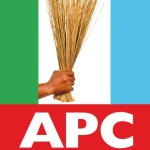MPC Decision To Raise MPR, CRR, Will Further Worsen Economic Crisis – Obi
Featured, Latest Headlines, News Across Nigeria Thursday, February 29th, 2024
(AFRICAN EXAMINER) – The Presidential Candidate of the Labour Party in the 2023 poll, Mr Peter Obi, has voiced concern over the recent decision of the Monetary Policy Committee (MPC) to increase the Monetary Policy Rate (MPR) to 22.5% and the Cash Reserve Ratio (CRR) to 45%.
Mr Obi warned that this move is likely to exacerbate the ongoing economic challenges faced by many Nigerian households.
In a statement issued today via X (formerly Twitter), the former Governor of Anambra state expressed his strong opinion that the MPC’s decision would have adverse effects on the economy, particularly on ordinary citizens already struggling with rising inflation and unemployment rates.
He emphasized the need for policies that prioritize economic recovery and address the root causes of the crisis one of which he says is insecurity.
Obi further urged policymakers to consider alternative measures that would stimulate growth and alleviate the financial burden on Nigerian households.
He called for a more holistic approach to economic management, taking into account the long-term welfare of the populace.
Let me confess that the label of being a vintage Onitsha-based trader does not in any way confer on me the status of an economic expert.
With my vast trading knowledge and my involvement in the real sector, I am of the strong opinion that the recent decision of the Monetary Policy Committee to increase the Monetary Policy Rate, MPR, to 22.5% and the Cash Reserve Ratio, CRR, to 45% will further worsen the economic situation of most Nigerian households as it is bound to cause more job losses in the productive sector, especially manufacturing and other sectors that rely on bank loans and credit facilities for their funding needs.
Tightening liquidity in the financial system does not improve productivity, i.e food production,
which is the major cause of inflation in Nigeria. Moreover, only about 12% of N3.6 trillion of the total money in circulation is in the banking system which means that 88%, about N3.2 trillion is outside the banking system.
So, this measure would rather be counterproductive as it would not address the intended purpose of managing the money supply. These new measures will worsen the fragile economy as the supply of funds would dry up for the real sector, and the new MPR rate hike will push the interest rate on loans to above 30%, which would be very difficult for the real sector operators especially manufacturers and SMEs to repay; resulting, obviously, in increased bad loans, and worsening the nation’s economic situation.
The most critical way to manage our high rate of inflation and decline in production is for the government to address the issue of insecurity in the country, which will allow for increased food, and crude oil production, and an overall increase in production,
which will make products, especially food, cheaper. This way we would increase our productivity as well as restore the confidence of FDIs and FPIs to come back to the country.
I must caution that what the Nigerian economy needs now is hard headed practical originality and results. Tinkering with classical economic theories can only deepen our crisis.
Related Posts
Short URL: https://www.africanexaminer.com/?p=94195






















